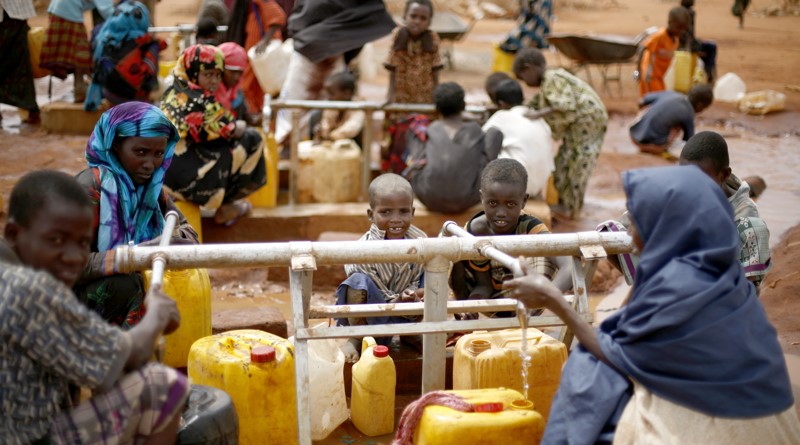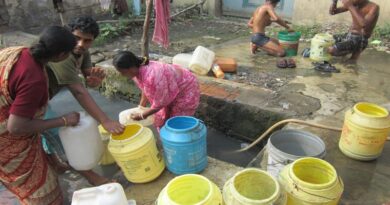Millions of children at risk from attacks on WASH facilities worldwide

Millions of children continue to be at risk from attacks on water & sanitation facilities and workers in various conflict-ridden regions around the world. These attacks are a threat to the lives of these children and deny them and their families access to critical water and sanitation services, UNICEF has warned.
A recent UNICEF report examined the immense impact on children and families when water and sanitation infrastructure are attacked, damaged or destroyed, controlled or otherwise restricted in countries besieged by armed conflict.
Protecting water and sanitation services is critical to the survival of millions of children. In fragile countries, children under the age of five are 20 times more likely to die due to diarrheal diseases than to violence, and children in extremely fragile contexts are often more than eight times worse off across water, sanitation and hygiene indicators than children born into stable and protected environments, the report said.
In the nine countries – Central African Republic, Iraq, Libya, Palestine, Pakistan, Sudan, Syria, Ukraine and Yemen – highlighted in the report, including countries across the Middle East, Africa, Asia and Europe, almost 48 million people, including children, are estimated to need safe water and sanitation services.
UNICEF director of emergency programmes Manuel Fontaine said, “access to water is a means of survival that must never be used as a tactic of war….attacks on water and sanitation infrastructure are attacks on children.”
“When the flow of water stops, diseases like cholera and diarrhoea can spread like wildfire, often with fatal consequences,” said Fontaine.
“Hospitals cannot function, and rates of malnutrition and wasting increase. Children and families are often forced out in search of water, exposing them, particularly girls, to an increased risk of harm and violence.”
To urgently protect children in conflict and guarantee access to safe and sufficient water, UNICEF has called for all stakeholders to conflict to immediately stop attacks on water and sanitation services and personnel, and fulfil their obligations to protect children in conflict, including protecting water and sanitation infrastructure.
It has also called upon states, including Security Council members, to take firmer action to hold the perpetrators of these attacks to account while donors have been urged to invest in water and sanitation in conflict situations, as it is the first line of defense against communicable diseases.
The UN agency has recommended that the public too should join the call to action to end attacks on children in conflict and add their voice to protect water and sanitation infrastructure and water workers.
UNICEF has urged the establishment of better monitoring and reporting of attacks and improved advocacy to end violations. It has also urged states to avoid legislation criminalising certain organisations for delivering aid in certain areas or engaging with non-state militia.



